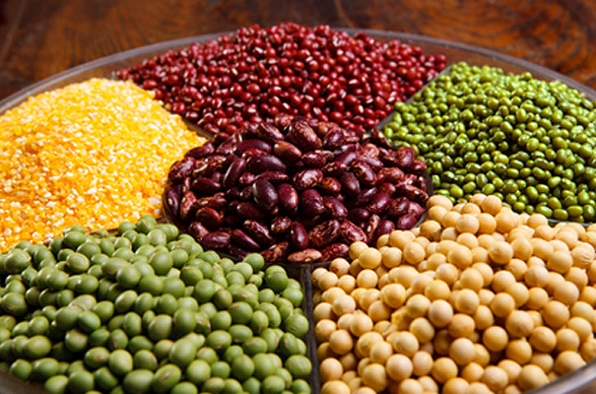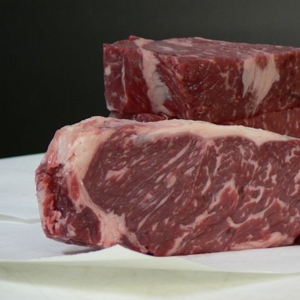We’re all familiar with the contributions that industry and automobiles make to the global greenhouse gas problem, but a new study from Tufts University spotlights a source of ozone layer-destroying emissions we may not have suspected. And we can all help just by changing our eating habits…
 Beans, Peas and Lentils: Together with Rice or another Grain, they provide
Beans, Peas and Lentils: Together with Rice or another Grain, they provide
a complete daily protein source for humans. And growing them
doesn’t impact the environment significantly…
I think we’ve all read somewhere about the contribution that ruminant animals (like cows) make, to climate change, from the rear end of their digestive processes. That’s just one agricultural source of greenhouse gas. Now, researchers at Tufts University in the U.S. have quantified the greenhouse gas potential of different kinds of foods and issued some recommendations that we can all adopt to help reduce our dietary carbon footprint.
What they did…
The researchers mined nationally representative data on food purchases, linking detailed household purchase data to a U.S. Environmental Protection Agency tool that can be used to calculate greenhouse gas emissions from every stage of the food supply chain, including production, manufacturing, distribution, transportation, and retail and restaurants.
“This study is a major advancement in our understanding the contribution of U.S. food choices to climate change,” according to Rebecca Boehm, the study’s lead author. Previous studies conducted in the U.S. did not always capture greenhouse gas emissions from all parts of the food system.
What they found…
Altering food consumption habits could be a key area for reducing greenhouse gas emissions, as food purchases accounted for 16 percent of U.S. food-sourced greenhouse gas emissions in 2013, according to the study. By comparison, commercial/residential activity accounted for 12 percent and industrial activity accounted for 21 percent of the nation’s greenhouse gas emissions.
In practical terms, the study suggests that the production of Beef, Pork and other red Meats could reduce overall food-related carbon emissions by 21 percent. Cultivation of fresh Veggies accounts for 11 percent, the Cheese industry contributes 10 percent and the Dairy sector (Milk products and Butter production) comes in at 7 percent.
What it means…
Simply stated, if we eat less Red Meat and Dairy, we can make a major impact on the food chain-based component of global carbon emissions. The corollary to this position is that we should all eat more Chicken and Fish, Vegetable Proteins and Fruits. If the idea of becoming a Vegetarian shocks or repels you, keep in mind that the Asian cultures have maximized Veggie, Grain, Chicken and Fish consumption while downplaying Red Meats and Dairy in their diets for thousands of years. And they regularly clock-in near the top of studies and surveys designed to rate the healthiness of various populations.
My take…
Sure, it would be great if we all pitched and and changed our diets to do our bit toward reducing greenhouse gas emissions. But I don’t see it happening. At least, not until – maybe – it’s too late.
Most people here in the West are pretty stuck on their accustomed food preferences, regardless of the avalanche of studies showing how unhealthy some of their preferred foods can be. And, now, there’s this study on the greenhouse gas impacts of various foods.
The red Meat and Dairy producing industries are large, and represent a significant portion of our economy. They can be a powerful lobbying force on government, should governments attempt to legislate our preferences away from their products. Not to mention the old truism, that you can’t legislate preferences. If the powers that be did try to legislate, it would just hurt the red Meat and Dairy producers and promote the development of a black or grey market around red Meat and Dairy products that aren’t moving through the usual inspected and regulated food supply chain.
The bottom line? I just don’t see this survey – as interesting and shocking as its implications may be – making any significant difference in overall food preferences here in the west.
~ Maggie J.

